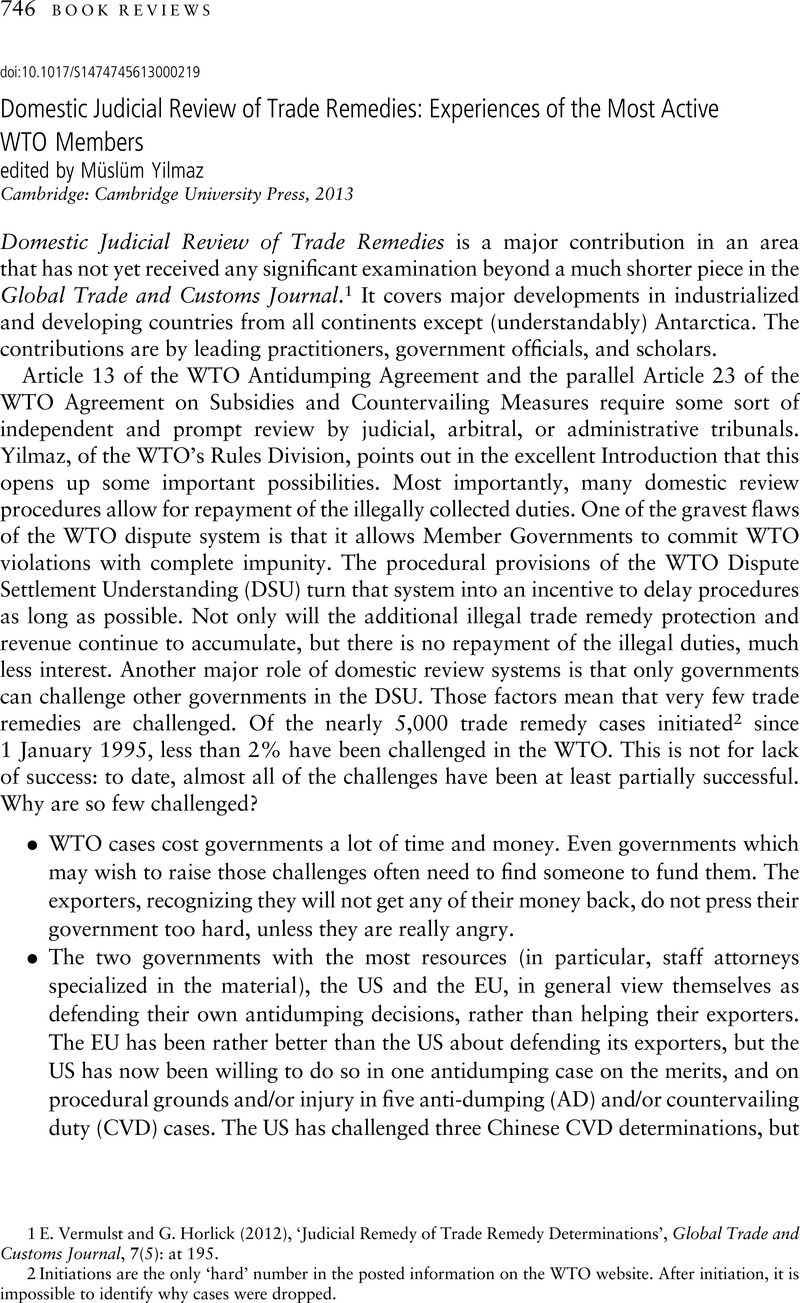No CrossRef data available.
Published online by Cambridge University Press: 04 September 2013

1 Vermulst, E. and Horlick, G. (2012), ‘Judicial Remedy of Trade Remedy Determinations’, Global Trade and Customs Journal, 7(5): at 195Google Scholar.
2 Initiations are the only ‘hard’ number in the posted information on the WTO website. After initiation, it is impossible to identify why cases were dropped.
3 As Yilmaz points out (page 9), this access to the domestic process is only for those who ‘cooperate’ with the authorities, but only for countervailing duties under Article 23 of the ASCM, not Article 13 of the ADA. Many of these minor differences between the ADA and ASCM are because of the ‘fog of war’ that surrounded the last few days of drafting in 1991 and the refusal of major Members to permit any rationalization of the text. I would note that in the US, historically, this ‘burden’ of participating in the investigation is easily met by filing a simple one-page, ‘Me Too’ brief at some point. I do think an entity ruled by the authorities to have been ‘noncooperative’ could be said not to have ‘participated’, and it would be improbable that that entity would not be allowed to challenge the domestic authority's finding of non-cooperation!